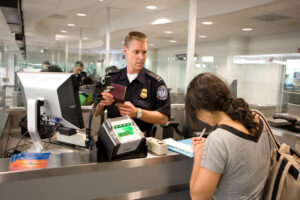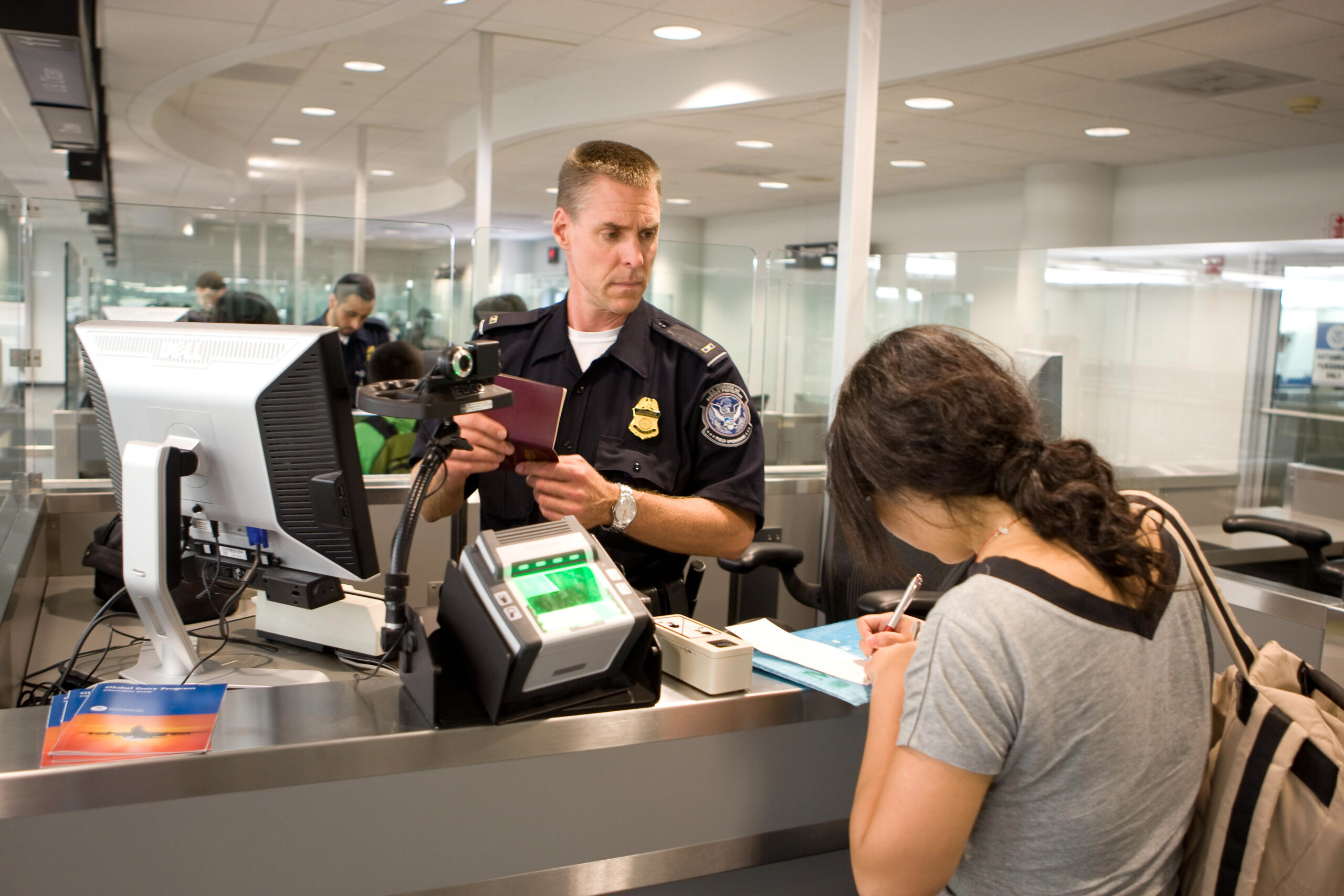By Kyara Rivera Rivera

The 4th Amendment states that “[t]he right of the people to be secure in their persons, houses, papers, and effects, against unreasonable searches and seizures, shall not be violated, and no Warrants shall issue, but upon probable cause, supported by Oath or affirmation, and particularly describing the place to be searched, and the persons or things to be seized.”[1] This guarantees that before a governmental agent can search you or your belongings they must obtain a warrant that is backed by probable cause.[2] This constitutional right is awarded to all individuals in the U.S. and gives peace of mind to many, but this peace of mind is not awarded to U.S. citizens that are passing through U.S. Customs while they attempt to enter the country.
When determining whether a search is unlawful, you must first determine whether a search has even been conducted. There are two standards that courts use to determine whether a search has occurred. The first is the Katz standard. Under Katz v. United States, you must prove whether the individual had an actual and subjective expectation of privacy, and you must prove that the expectation is one that society is prepared to recognize as “reasonable.”[3] The second standard that courts may use is the Jones standard. Under United States v. Jones, if the government physically occupies an individual’s private property with the intent to gain information, then it was a search.[4] These standards guide courts in determining whether a search has occurred. From there, they must determine whether the search itself was unreasonable, who has standing to bring such a claim, and more.
When a United States citizen passes through U.S. Customs and the governmental agents request to search their phone, most would consider that a “search” under Katz and even Jones, since there is an exception of privacy in one’s own device, society would deem an expectation of privacy in one’s phone as “reasonable,” and the government is occupying the phone private property to gain information. In Riley v. California, the court even seemed to agree with this when they held that the police need to obtain a warrant prior to conducting a search of an arrestee’s phone.[5] Their reasoning drew on similar conclusions, such as phone contents being exceptionally personal to one’s life.[6]
From this case, most would conclude that this would deem the warrantless searches that occur at U.S. customs when citizens are attempting to enter the country as unconstitutional. But that is not the case. Under Alasaad v. Mayorkas, the 1st Circuit was able to take on this exact situation, but ultimately came out differently than most believed they would.[7] Under Alasaad, the court determined that Customs and Border Protection is not violating any constitutional rights when they conduct these searches because, not only are they typically basic level searches, but there is also a border exception.[8]
Although some politicians and public figures are speaking out against this since they believe it remains a violation of constitutional rights, it is important to be aware of our constitutional rights as they are currently awarded to us. So if you find yourself entering the country after international travel, be aware that your phone may be subjected to a search, even though there is not a warrant.
[1] U.S. Const. art. IV.
[2] Do Warrantless Searches of Electronic Devices at the Border Violate the Fourth Amendment?, Congressional Research Service (Mar. 17, 2021), https://crsreports.congress.gov/product/pdf/LSB/LSB10387.
[3] Katz v. United States, 389 U.S. 347 (1967).
[4] United States v. Jones, 565 U.S. 400 (2012).
[5] Riley v. California, 573 U.S. 373 (2014).
[6] Id.
[7] Do Warrantless Searches of Electronic Devices at the Border Violate the Fourth Amendment?, Congressional Research Service (Mar. 17, 2021), https://crsreports.congress.gov/product/pdf/LSB/LSB10387.
[8] Id.

